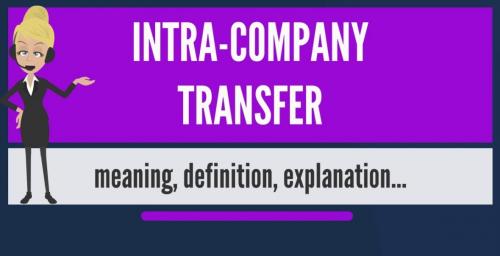Immigration Options for Entrepreneurs and New Businesses

The most sought-after of these highly qualified entrants are immigrants, particularly those who founded high-tech, fast-growing firms that appeal to legislators. Numerous nations, like the US, Canada, and the United Arab Emirates, have special business immigration procedures that allow international business owners to get permanent status. Such programmes are comparable to golden visa options and citizenship by investment schemes, but most of them demand active investment before you can eventually obtain citizenship in return for investment. By making investments in companies of the host country, business owners, entrepreneurs, and investors can get citizenship through immigration for business.
Entrepreneurs can and do qualify for a wide range of visas and green card possibilities by comprehending the options chosen for entrepreneurial clients and by creating a long-term plan for a future abroad, even when options aren't always clear-cut or uncomplicated.
Some of the significant locations that Indian business people priorities highly include nations like the UK, USA, Canada, UAE, and Singapore.
Benefits and Rationale of Choosing Immigration Entrepreneurship
There are many different types of immigrant company owners. Companies exist in all industries and range in size from tiny one-person operations to big global corporations.
Because it can help transmit innovation between nations and provide jobs, immigrant entrepreneurship plays a crucial role in economies. Also, as many immigrants face obstacles to employment, such as the non-recognition of their credentials, self-employment gives them an alternative to paid employment.
Immigrant entrepreneurs are becoming more prevalent. An increase in migratory flows is a major factor in the rise of immigrant entrepreneurs and business owners.
Also, immigrant entrepreneurs' business practices are evolving. Over the past ten years, the proportion of immigrants who work for themselves has somewhat increased in the education and service sectors, while it has decreased in the agricultural, lodging, and food services. Although immigrants' general skill levels are rising, there is conflicting evidence regarding the skill levels of immigrant entrepreneurs in EU Member States. Nonetheless, the number of overseas students who go on to launch their own businesses has increased significantly.
Business immigration is a branch of immigration law in Canada that assists foreign entrepreneurs, investors, business owners, start-ups, and high-net-worth individuals. Foreign nationals and their families may be granted permanent residency in Canada by bringing more foreign business to the country, investing in an existing one, or launching a new one.
Foreign business people and investors must first seek permanent resident status in Canada in order to become Canadian citizens. After physically being in Canada for three years, only those who are permanent residents are eligible to apply for citizenship.
Permanent immigration via a green card and temporary immigration via a work visa are the two main routes to employment in the United States. Business owners and investors have access to both of these routes, but the particular visas you are eligible for will vary depending on your personal situation. A U.S. visa is not required if you work for a U.S. company abroad, but it is required if you operate an online business while resident in the U.S. Finally, and regrettably, there is no such thing as a "Entrepreneur Visa" in the US, thus we are left attempting to squeeze entrepreneurs onto visas that are typically only given to workers.
How Do Business Visas Operate?
Successful business people are an uncommon breed. Venture capitalists, who specialise in spotting promising company concepts, view high failure rates as typical and unavoidable because either individuals don't start businesses or they do and fail. Governments therefore face a difficult decision when deciding which ambitious business owners to allow.
The most frequent tactic used by governments is to accept potential immigrants and track their progress over time. Many nations give temporary or "conditional" visas that can be extended or changed to permanent ones if immigrants succeed in business within a short period of time.
Although these programmes' architecture are similar, their methodologies differ, policy makers show how high to set the bar for initial entrance and for permanent residence, and how quickly immigrants must establish a successful business while in the nation, to some of the major design difficulties policymakers face. Holders of an entrepreneurial visa are required to participate actively in the management of the business.
For instance, the EB-5 visa in the United States and its analogues in other countries are not intended for passive investors, for whom other (much more expensive) choices are available.
Requirements:
The initial investment needed to buy or start a business in Canada can often range from $100,000 to $350,000 CAD.
For example, to generate net profits of $100,000 for the owner each year it would require about $500,000 to start (net revenue x 5).
Entrepreneurs, independent contractors, and service providers can live in Portugal with a D2 visa. The purpose of this visa, according to the Portuguese government, is to attract foreign capital and investments in order to expand the Portuguese economy. Only non-EU/EEA/Swiss nationals who want to launch a business in Portugal or move an existing one are eligible for this visa. You may also decide to invest in a Portuguese company that is already established. The Portugal D2 Visa is less well-known than the D7 Visa and the Golden Visa Options, but it can still be a good option for people who want to work for themselves in Portugal and want to obtain citizenship.
There are several ways to become a permanent resident of Portugal; flexible and modern techniques that are appropriate for candidates for immigration for business and residence.
You can apply for a Business Residence Visa if you want to start a business in one of the United Arab Emirates' free zones and obtain a residence visa. You must own shares worth at least AED 50,000 in order to form a company or buy shares of one that already exists (fully paid-in). The company is not needed to carry out any genuine business operations there. One of the more than 40 available free zones is where you can incorporate your company. Free zone businesses are tax-exempt, although they normally are limited to operating there or abroad.
For immigration businesses in the United States the EB-5 programme can be a good way to start and apply. A customer must invest $1,050,000 USD (or $800,000 USD if investing in a selected low-employment area) and hire 10 full-time U.S. workers in order to be eligible for EB-5 immigration. Customers have two options for investing: they can do it directly through their own U.S. company or through a regional centre, where their funds will be combined with those of other investors and put in already approved business ventures.
Having startup cash is the first need for obtaining an entrepreneur visa. Most nations allow for finance to originate from any legitimate source, including an entrepreneur's own funds.
In addition to requiring beginning cash, some nations also carefully review the business plans of immigrants and they must provide a full proof business plan.
A selection committee makes suggestions regarding which company proposals to approve.
This strategy has been criticised for forcing government personnel into the challenging task of spotting entrepreneurial talent, a task for which they may not be qualified. Relying on the opinions of outsiders, such as venture capitalists, who review business ideas professionally is one approach to get around this issue.
For instance, the vast majority of established enterprises in the United States did not have official investor support when they were beginning. Those who have already made one or more efforts at starting a business or whose companies have been in operation for a number of years are frequently given loans by venture capitalists. If their host nation does not provide them any additional opportunities, some immigrants will never reach this point.
Enroute Permanent Residency
If an immigrant establishes a prosperous firm, their conditional entrepreneur visas can normally be renewed or changed to permanent residence after two to four years.
After two to four years, conditional entrepreneur visas for immigrants can typically be renewed or converted to permanent residency if they launch a successful business.
Governments creating entrepreneur visa programmes must choose not just how high to hold entrepreneurs' success standards, but also how rapidly they must reach them. Typically, more stringent standards and shorter time frames to meet them are intended.
Immigrants who do not qualify the criteria for permanent residence have to leave the country or must try for an ordinary work visa for employees. As stated earlier, the countries lacking any specific entrepreneur visa offer other visas for certain entrepreneurs.
Entrepreneur visas may also be utilised to draw in foreign immigrants. Entrepreneurs, on the other hand, cannot be transferred from one nation to another; as a result, those who arrive in a new country without any connections or commercial expertise may not find it easy to establish their operations.









Comments